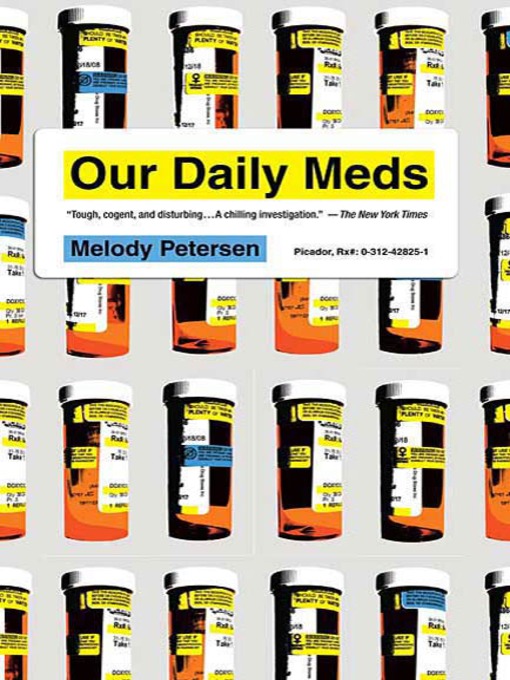In the last thirty years, the big pharmaceutical companies have transformed themselves into marketing machines selling dangerous medicines as if they were Coca-Cola or Cadillacs. They pitch drugs with video games and soft cuddly toys for children; promote them in churches and subways, at NASCAR races and state fairs. They've become experts at promoting fear of disease, just so they can sell us hope.
No question: drugs can save lives. But the relentless marketing that has enriched corporate executives and sent stock prices soaring has come with a dark side. Prescription pills taken as directed by physicians are estimated to kill one American every five minutes. And that figure doesn't reflect the damage done as the overmedicated take to the roads.
Our Daily Meds connects the dots for the first time to show how corporate salesmanship has triumphed over science inside the biggest pharmaceutical companies and, in turn, how this promotion driven industry has taken over the practice of medicine and is changing American life.
It is an ageless story of the battle between good and evil, with potentially life-changing consequences for everyone, not just the 65 percent of Americans who unscrew a prescription cap every day. An industry with the promise to help so many is now leaving a legacy of needless harm.
- Onyx Storm Read- Alikes
- Staff Reads
- In Memoriam 2024
- Cook Up Something Cozy
- Short 'n' Sweet
- Bans off Our Books
- Yo Ho Ho, a Pirate's Life for Me
- Farm to Table
- As If: Modern Books Featuring 80s and 90s Nostalgia
- Wilderness Women
- In My Libby Era: Books for Swifties
- Cowboys and Country Music
- Literary Longlists
- See all ebooks collections
- Full Cast Audiobooks
- Available now Audiobooks
- Just Added Audiobooks
- Pacific Northwest Authors & Settings
- Agatha Christie and Friends
- Books about Books
- Quick Stories
- Uplifting Listens
- Good Enough to Eat
- All You Have to Do Is Call
- Listen to the Great Outdoors
- American History
- Queerly Beloved
- See all audiobooks collections
- News & Politics
- Celebrity
- Health & Fitness
- Food & Wine
- Fashion
- Tech & Gaming
- Business & Finance
- Revistas
- Cars & Motorcycles
- Home & Garden
- See all magazines collections

